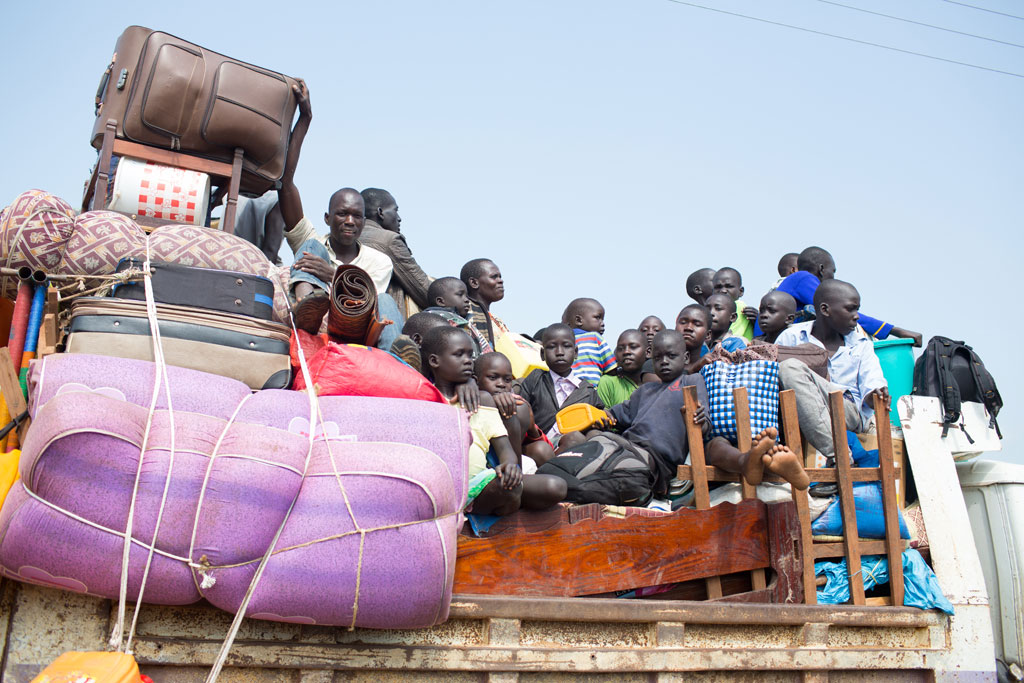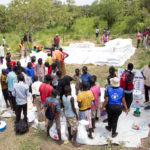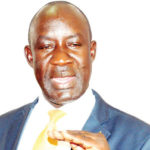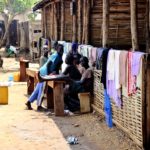Armed groups operating along the South Sudan roads leading to Uganda are blocking distressed people fleeing the fighting in the war-torn country.
According to the United Nations High Commissioner for Refugees (UNHCR) about four thousand South Sudan refugees cross into Uganda every day, with most striving to evade the marauding armed men attempting to thwart their journey to safety.
According to the UNHCR, over 60,000 people have fled South Sudan’s recent violence in the capital city of Juba, bringing the overall number of South Sudanese refugees in neighbouring countries since December 2013 to nearly 900,000.
Refugee flows from South Sudan into Uganda have doubled in the past ten days, bringing the total to more than 52,000 since violence escalated three weeks ago. Kenya has reported the arrival of 1,000 refugees in the same period, while 7,000 have fled to Sudan, the UNHCR has said.
“The refugees bring disturbing reports that armed groups operating on roads to Uganda are preventing people from fleeing South Sudan,” Melissa Fleming, UNHCR chief spokesperson said in Geneva.
More than 85 per cent of the refugees arriving in Uganda are women and children under the age of 18, she added. Many children have lost one, or both of their parents. Most are from Eastern Equatoria, with smaller numbers from Juba and Upper Nile state. Many took advantage of the opportunity to flee alongside Ugandan military convoys evacuating Ugandan nationals.
“Improving conditions and capacities at existing reception facilities in Uganda is a key priority,” Ms. Fleming said. Collection points in border areas have now been significantly decongested, although transit centres and reception centres remain severely stretched. Efforts are underway to rapidly open a new 100,000 capacity refugee settlement area in Yumbe district.
Both Uganda and Kenya are reporting rising cases of severe malnutrition, particularly among very young children, she said. Those found to be suffering are being placed on food nourishment programmes to bring them back to health.
The spokesperson said that UNHCR is reminding all parties to the conflict in South Sudan of a fundamental human right to seek asylum and urging them to ensure that civilians are provided with unhindered access to safety as the number of refugees crosses a worrying milestone.
The recent fighting between rival forces – the Sudan People’s Liberation Army (SPLA) loyal to President Salva Kiir and the SPLA in Opposition backing First Vice-President Riek Machar – erupted in and around Juba, on July 7.
New arrivals from Yei say they received letters warning them to evacuate the town in anticipation of conflict between rebel and government forces, the spokesperson said. Refugees have also reported that armed groups operating across different parts of South Sudan are looting villages, murdering civilians and forcibly recruiting young men and boys in to their ranks.
With over 2.6 million of its citizens forcibly displaced, the world’s youngest nation currently ranks among the countries with the highest levels of conflict-induced population displacement globally, she said, warning that half the population relies on humanitarian aid.
South Sudan was founded in July 2011, after it gained independence from Sudan. The country descended into conflict in December 2013 due to internal struggles between rival factions.








